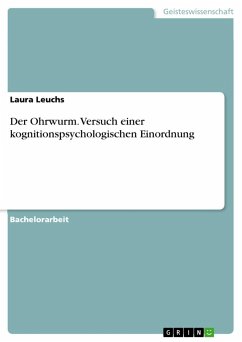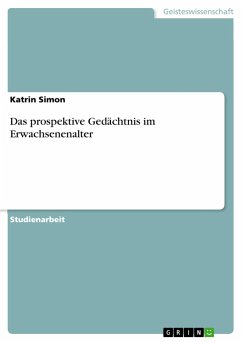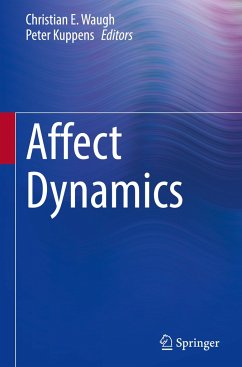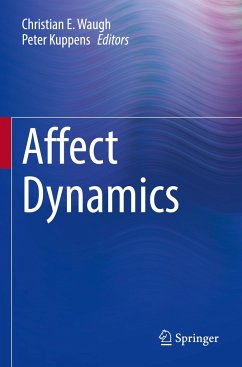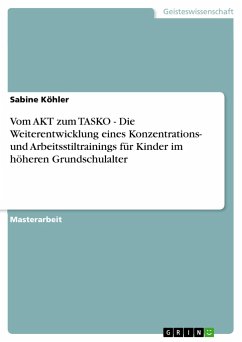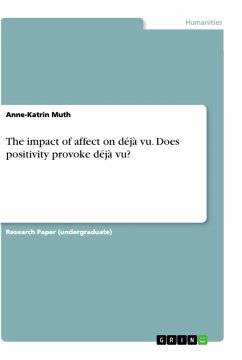
The impact of affect on déjà vu. Does positivity provoke déjà vu?

PAYBACK Punkte
0 °P sammeln!
Research Paper (undergraduate) from the year 2011 in the subject Psychology - Cognition, grade: 1,0, University of Groningen, language: English, abstract: This study sought to find out whether the effect of positive mood on familiarity also transfers to déjà vu. It was hypothesized that people with a higher positive affect will be more likely to commit errors in a memory judgment task, and subsequently experience more déjà vus in a lab study. 42 participants of both sexes with a mean age of 23 participated for course credit or voluntarily. We used a 2 x 2 experimental research design with ...
Research Paper (undergraduate) from the year 2011 in the subject Psychology - Cognition, grade: 1,0, University of Groningen, language: English, abstract: This study sought to find out whether the effect of positive mood on familiarity also transfers to déjà vu. It was hypothesized that people with a higher positive affect will be more likely to commit errors in a memory judgment task, and subsequently experience more déjà vus in a lab study. 42 participants of both sexes with a mean age of 23 participated for course credit or voluntarily. We used a 2 x 2 experimental research design with a mood induction (positive and neutral) and a computer task with pictorial stimuli; assignment to the mood conditions was random. The dependent variables were performance at a memory test and déjà vu occurrence. Independent variables were level of positive affect and processing style (deep or shallow). While we did not find that people with a higher positive affect were less accurate in the memory test, we found that more positive people were more likely to experience déjà vu. We concluded that the results of the present study could shed new light on previous studies but urge their replication with a larger sample size.





